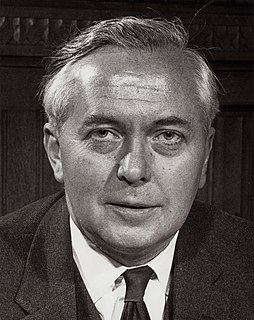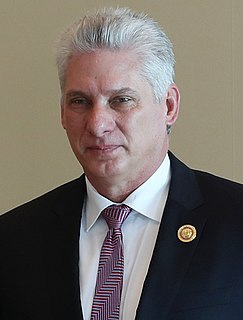A Quote by Harold Wilson
We are redefining and we are restating our socialism in terms of the scientific revolution.
Quote Topics
Related Quotes
Groups do not have experiences except insofar as all their members do. And there are no experiences... that all the members of a scientific community must share in the course of a [scientific] revolution. Revolutions should be described not in terms of group experience but in terms of the varied experiences of individual group members. Indeed, that variety itself turns out to play an essential role in the evolution of scientific knowledge.
Our socialism does not include extreme materialistic concepts, since Indonesia is primarily a God-fearing, God-loving nation. Our socialism is a mixture. We draw political equality from the American Declaration of Independence. We draw spiritual equality from Islam and Christianity. We draw scientific equality from Marx.
If Socialism, like all errors, contains some truth (which, moreover, the Supreme Pontiffs have never denied), it is based nevertheless on a theory of human society peculiar to itself and irreconcilable with true Christianity. Religious socialism, Christian socialism, are contradictory terms; no one can be at the same time a good Catholic and a true socialist.
I think that most people don't think in terms of an American revolution, they think in terms of a Russian revolution, or even a Ukrainian revolution. But the idea of an American revolution does not occur to most people. And when I came down to the movement milieu seventy-five years ago, the black movement was just starting, and the war in Europe had brought into being the "Double V for Victory" [campaign]: the idea was that we ought to win democracy abroad with democracy at home. And that was the beginning of an American revolution, and most people don't recognize that.
How can we appraise a proposal if the terms hurled at our ears can mean anything or nothing, and change their significance with the inflection of the voice? Welfare state, national socialism, radical, liberal, conservative, reactionary and a regiment of others ... these terms in today's usage, are generally compounds of confusion and prejudice. If our attitudes are muddled, our language is often to blame. A good tonic for clearer thinking is a dose of precise, legal definition.
Like most terms of political discourse, socialism has more or less, lost its meaning. Socialism used to mean something. If you go back far enough it meant basically control of production by producers, elimination of wage labor, democratization of all spheres of life; production, commerce, education, media, workers control of factories, community control of communities, and so on. That was socialism once. But it hasn't meant that for a hundred years. Socialism meant something different.
The basic question that the 'new science' raises for our balance sheet is the issue of what scientific questions have not been asked for 500 years, which scientific risks have not been pursued. It raises the question of who has decided what scientific risks were worth taking, and what have been the consequences in terms of the power structures of the world.
In the course of history periods of capitalism and socialism alternate with one another; capitalism is the unnatural, socialism the natural economic system... The National Socialists and the Red Front have the same aspirations. The Jews falsified the Revolution in the form of Marxism and that failed to bring fulfilment.







































